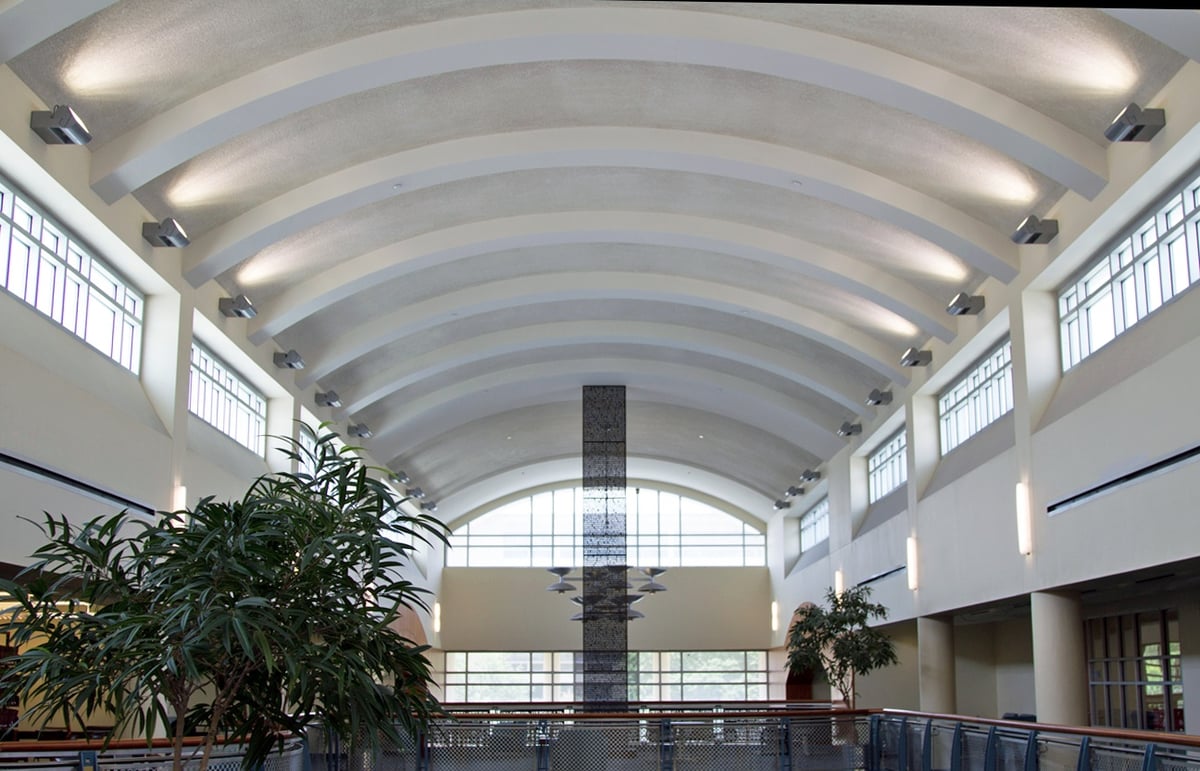Without light, we cannot see, and since so many of our daily activities are inherently tied to our ability to perceive shape, form, color and depth, the technology that creates light has become central to our lives.
Lighting has made much advancement over the decades, regarding the technology to create it, the science of understanding it, and the design sensibility to install and display it for maximum effectiveness. However, there can often be more to the creation and installation of light in a building than just installing wiring, switches and then turning on the lights. Lighting designers are playing an increasingly important role in lighting needs for both commercial and pedestrian areas, and there are several good reasons you should consult them for your space.

What is a Lighting Designer?
First, let's get a better understanding of this job. As you may have already guessed from the name, a lighting designer is a specialist in lighting systems. Their specific area of focus is in the planning stages when you are conceptualizing your building. Lighting designers have the expertise at both the general architectural level, and the specific area of lighting, to ensure that your space is adequately bright.
Of course, good lighting varies from one building project to the next. A greenhouse may have an emphasis on admitting as much natural light as possible, while at the same time having contingencies for substitutes to sunlight on cloudy days. A gallery or exhibition space, on the other hand, would want to avoid the damaging effects of sunlight on artwork and they need adjustable lighting to accommodate different exhibits, displays, and installations over time. Lighting designers can be essential experts who help people to address the challenging lighting needs that some buildings present. They offer their expertise in four key areas:
Technology
Lighting technology continues to evolve, from the filament and fluorescent light bulbs to LEDs, dimmers and other new forms of control. Lighting designers have up-to-date knowledge of the latest technologies available to the market, whether you have need of them for industrial, commercial, residential or even educational and exhibition purposes. By understanding and knowing what’s out there, the best choices can be made available to you. Whether you need occupancy sensors to ensure that lights only turn on when people are present, and turn off when they’re not, or are thinking of using relay modules and communication-based control devices, only someone who is informed about current and cutting-edge lighting technology and control systems is qualified to assist you in these matters.
Technique
Lighting is an important, unsung companion of good architecture. Form and function are severely handicapped if they can't be seen correctly. Lighting designers know how to extend architectural features, through the proper use of light. Depending on your goals, light can be used to enhance professional needs or aesthetic ones such as bringing out the most beautiful aspects of a building at different times of the day. Various structures and professionals will have very distinctive needs for how to light a space or the objects and equipment inside it.
Education
Lighting designers aren’t instantly knowledgeable; they remain so by staying informed about industry developments, as well as studying and remaining cognizant of things like electrical systems, optics, business practices, construction codes, and safety requirements. They are also knowledgeable about environmental impact and construction and stay on top of industry developments through networking, trade magazines or journals and seminars, as well as re-licensing practices in some cases. If you want the best possible chance of environmental friendliness and performance efficiency, the expertise of a lighting designer will get you there.
Cost Control
Finally, lighting designers understand that no project has an endless supply of money. By planning out needs and balancing them against a budget, lighting designers can help projects to find the optimal balance of cost versus performance. The strategic implementation of lighting techniques or technologies that reduce costs and minimizing "over-lighting" by balancing the right products with daylight integration can also help keep costs low. Intimate knowledge of manufacturer product availability coupled with a realistic evaluation of a project's needs will ensure efficiency and cost-effectiveness.
Let Us Help!
If you're the owner or project manager on a job where lighting may be an essential component of your plans, make sure it's done right. Get a qualified lighting designer to handle this critical element of the project. XtraLight LED Lighting Solutions is here to help! You can learn more about lighting controls from our dedicated resource page. We also have representatives located across North America to listen to your needs and find tailor-made LED products for you. Contact us today and get your free lighting assessment.

